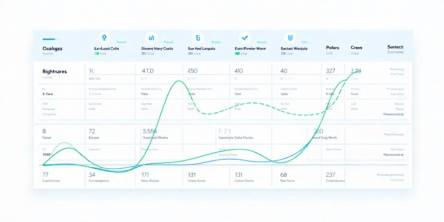Flutter vs Native App Development: Which One Should You Pick?

App development is among the most popular phenomenons in the digital ecosystem because, well, what can’t apps do? However, the decision to develop an app is based on a variety of factors, especially the technologies to use for such development. One of the most common queries in this regard is deciding between Flutter and native app development.
Flutter is a cross-platform framework, i.e. a collection of tools that facilitates the development of one app that can be run on multiple platforms such as iOS, Android, etc. It can be used for creating MVP mobile apps, GPS-based apps, apps with agile UI and advanced widgets, etc.
Native technologies, on the other hand, enable the development of apps meant for a specific platform such as Android, iOS, etc. So, native technologies are typically used in gaming apps, IoT apps, and heavy computation apps.
While both Flutter and React Native are compelling cross-platform app development tools there are also some advantages if you choose native app development instead of the cross-platform framework(s). What you need is a detailed analysis of the capabilities, pros, and cons of Flutter vs React Native. It helps you to make an informed decision for app development project needs.
Comparison of Flutter and Native App Development
Time to quickly compare Flutter and native app development on some key factors:
- Code maintenance: We will cut straight to the chase: maintaining native apps is a cumbersome task. One not only has to maintain several individual codebases but also undertake multiple rounds of updates, bug identification, etc. for every platform on which they are running the app. Code maintenance is much easier with Flutter since there is a single codebase involved. Furthermore, Flutter also makes it easier to find bugs, offers the Hot Reload feature, etc., thus rendering code maintenance much simpler.
- App performance: While Flutter initially faced some teething issues when it was first launched in 2017, the development of technologies has ensured that this Google-backed development tool delivers app performance comparable to that of a native app. However, when it comes to CPU usage and efficient memory consumption, native app development wins hands down.
- Cost: This is among the most important factors for consideration when one is looking to build an app because you don’t want to opt for an option that cannot adhere to your budget. So, when it comes to costs, native app development is decidedly more expensive owing to the sheer fact that you have to develop individual apps for every platform that you are targeting. Plus, native development also needs more resources including developers, designers, etc. Flutter, on the other hand, allows you to target several platforms with one app. On average, Flutter can help companies save over 45 percent in development costs.
Finally, let us also take a look at when to use each one of the two.
When Flutter is the right tool for app development:
- To build an MVP with on-demand mobile features and reactive widgets
- To develop one code with both front-end and back-end functionalities
Top reasons to choose native app development:
- To create high-performance apps with a robust OS-driven link between the device and the app
- To develop an app that offers not only top-notch security and reliability but a host of advanced features as well
We understand that choosing between Flutter for cross-platform app development and native app development may come across as a complicated choice. After all, both options on the table seem to offer plenty of benefits; so, how does one choose? Well, to ensure you make the right choice, first carefully evaluate your own project’s requirements, expectations, goals, budget, etc, and then compare them against what Flutter and native app development have to offer. This will help you make an informed decision if you need a Flutter development services provider or one for native app development.
Similar Articles
Modern businesses are drowning in communication overload, and much of that burden stems from outdated tools that simply can’t keep up
Building lending software isn’t just a technical project—it’s a business decision. Whether you're a fintech founder or part of a traditional lending institution trying to go digital, three questions will shape everything that follows
Learn why robust security is crucial for super app development. Explore key strategies and best practices for mobile app development security.
Walkie-talkies with an extensive reception capacity have changed significantly when it comes to portable communication by displaying cutting-edge features with seamless connectivity that covers more than just the state
USB-C technology has revolutionized the way we charge our devices, offering faster charging speeds, higher power delivery, and universal compatibility across multiple devices
Discover expert mobile app development strategies to create a viral app that attracts users and boosts engagement
Optimize app localization for iOS users across the EU with language, cultural, and regulatory adaptations. Engage users and boost retention with these tips!
Discover the top 10 mobile app development trends of 2024! Explore 5G, AI, AR/VR, blockchain, and more to stay ahead in the ever-evolving app development landscape.
With its triple-lens design and fantastic photo and video quality, the iPhone 11 Pro Max is extensively acknowledged for its superior camera system. But problems can occur with also one of the most advanced technologies. If you're having issues with the iPhone 11 pro max camera lens, knowing the typical problems and how to repair them









